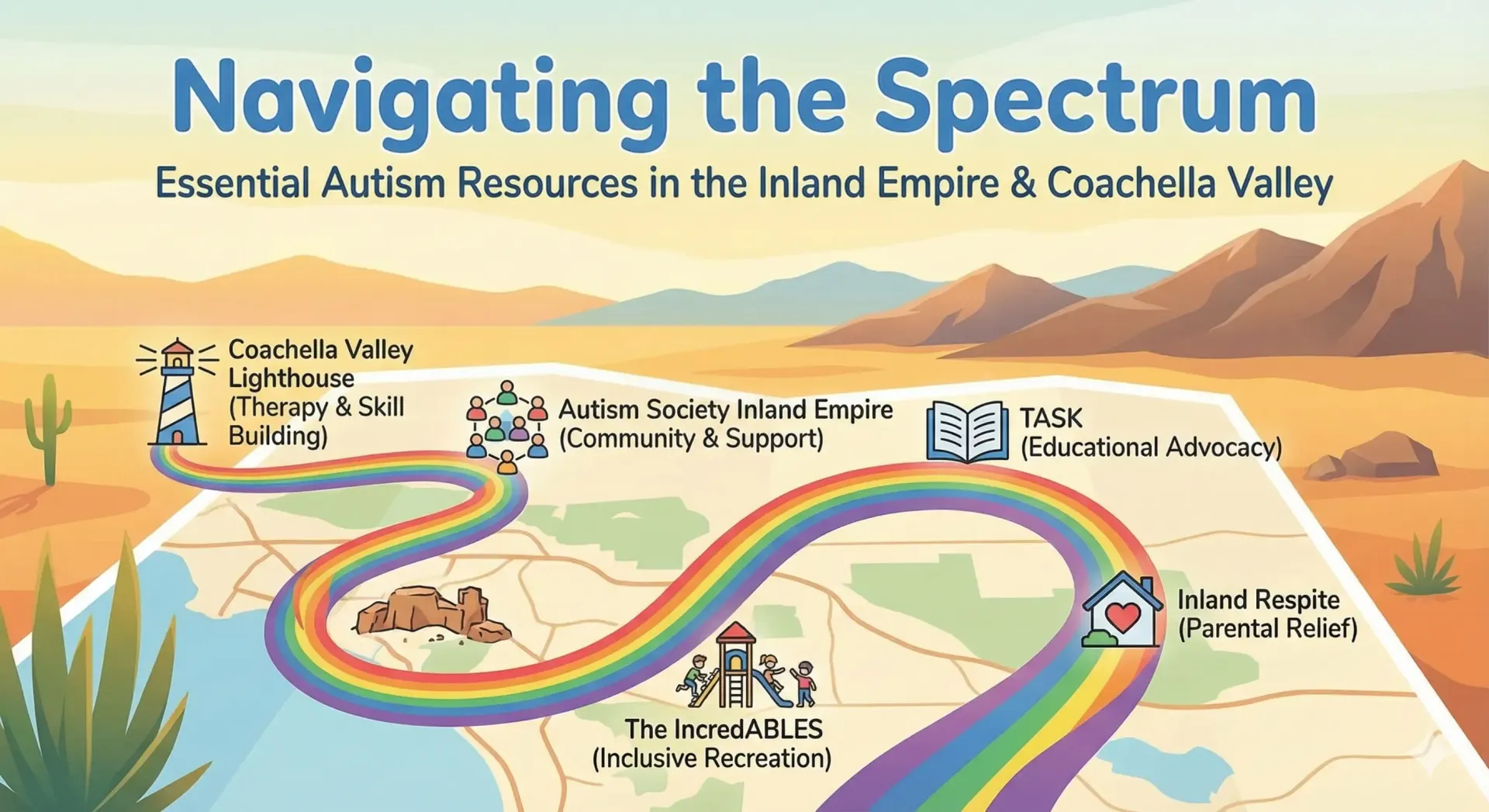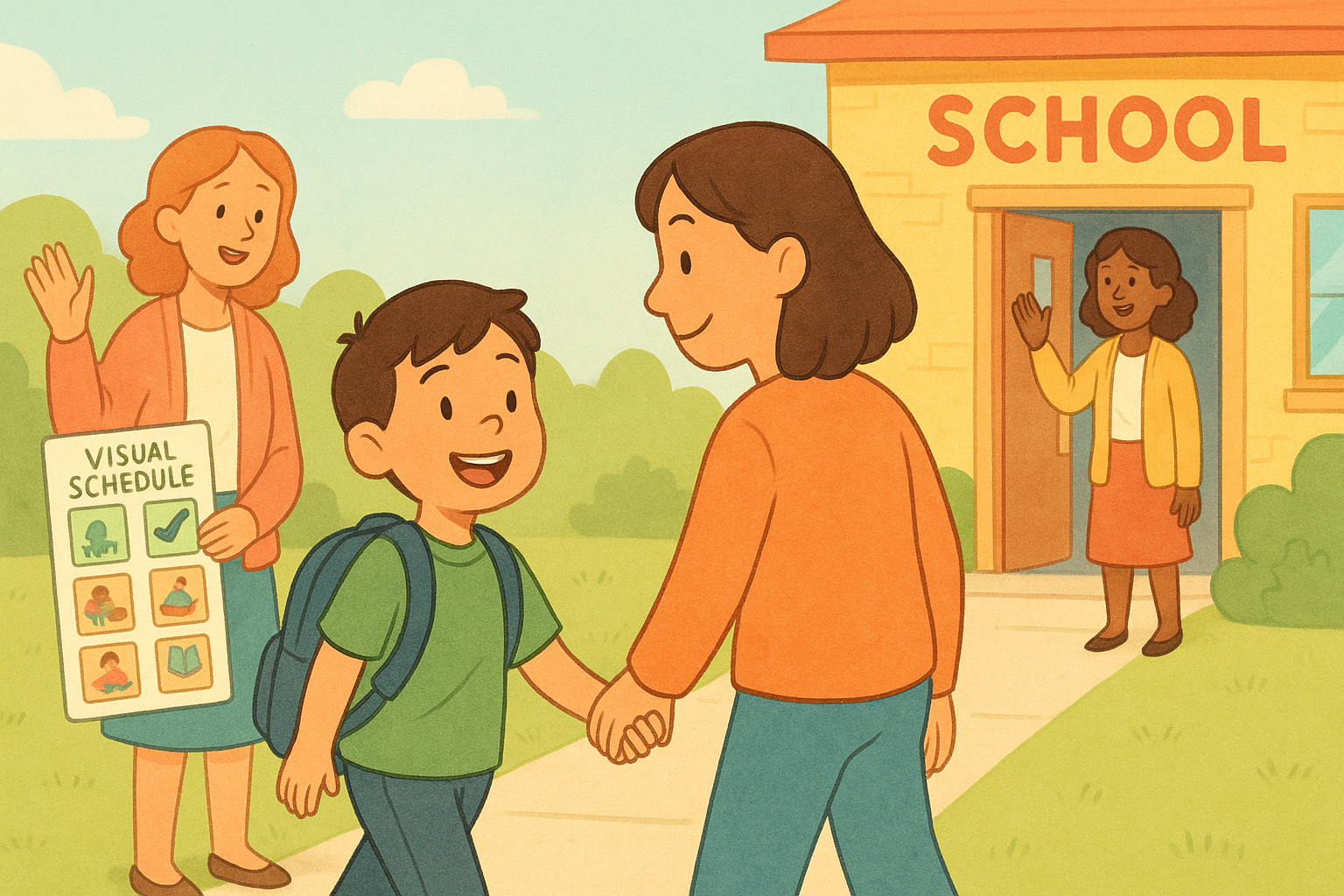Autism Spectrum Disorder (ASD): Debunking Myths and Sharing Facts
Autism Spectrum Disorder (ASD) has been frequently misunderstood and misinterpreted throughout history.
While awareness and understanding have improved over the years, misconceptions about ASD persist.
This article aims to debunk prevalent myths surrounding Autism Spectrum Disorder (ASD) and shed light on essential facts.
What is Autism Spectrum Disorder?
Autism Spectrum Disorders (ASD) represent a complex range of neurodevelopmental conditions that affect how a person thinks, interacts, communicates, and perceives the world around them.
These disorders are distinguished by a broad spectrum of symptoms and abilities, hence the term "spectrum."
Myth 1: Autism is Rare
Contrary to the myth that autism is rare, it is pretty standard. The Centers for Disease Control and Prevention (CDC) report that about 1 in 54 children in the US are diagnosed with ASD.
This prevalence emphasizes the importance of understanding and addressing the needs of individuals with autism.
Myth 2: Autism is a Childhood Disorder
Fact: Autism is not a disorder that only affects children. While it is typically diagnosed in early childhood, ASD is a lifelong condition.
Individuals with autism continue to experience its effects throughout their lives.
Early intervention and support are crucial, but ongoing assistance and understanding are equally important.
Myth 3: All Individuals with Autism Have the Same Characteristics
Fact: Autism is a spectrum, meaning no two individuals with ASD are exactly alike.
The characteristics and severity of symptoms can vary widely.
Some individuals with autism may have significant communication challenges, while others may excel in certain areas, such as mathematics or music.
Recognizing this diversity is essential in providing tailored support and understanding to individuals with ASD.
Myth 4: Autism is Caused by Bad Parenting
Fact: One of the most damaging myths surrounding autism is the belief that it results from poor parenting or neglect.
This idea has been thoroughly debunked by research.
Autism is primarily a neurodevelopmental disorder influenced by genetics.
Parenting practices do not cause autism.
Instead, early intervention and a supportive family environment can improve outcomes for individuals with ASD.
Myth 5: People with Autism Lack Empathy
Fact: Another pervasive myth is that individuals with autism lack empathy or the ability to understand and share the feelings of others.
In truth, empathy can manifest differently in those with ASD.
Some may struggle with recognizing emotional cues, while others may have heightened empathy but difficulty expressing it.
Understanding these differences is crucial in building meaningful connections with individuals on the autism spectrum.
Myth 6: Autism Can Be "Cured"
Fact: There is no cure for autism, nor should it be viewed as a disease needing medicine.
Autism is a part of a person's neurodiversity, and interventions aim to improve an individual's quality of life and help them develop essential skills.
Early intervention and various therapies can be highly beneficial but do not "cure" autism.
Myth 7: Individuals with Autism Are Nonverbal
Fact: While some individuals with autism may be nonverbal or have limited speech, many are proficient communicators.
It is essential to recognize that communication difficulties can manifest in various ways.
Some individuals with ASD may use alternative communication techniques, such as sign language or assistive technology, to express themselves effectively.
Myth 8: Autism is a Mental Illness
Fact: Autism Spectrum Disorders are not mental illnesses.
They are neurodevelopmental conditions that affect brain development and functioning.
It is crucial to distinguish between neurodevelopmental disorders like autism and mental health conditions.
While individuals with autism may experience mental health challenges, these are separate from the core characteristics of autism.
Myth 9: Individuals with Autism Cannot Lead Independent Lives
Fact: Many individuals with autism lead independent and fulfilling lives.
With appropriate support, education, and accommodations, individuals with ASD can achieve a high degree of independence.
Success stories of individuals with autism in various fields, from science to the arts, highlight the potential for a fulfilling and self-sufficient life.
Myth 10: Autism Can Be Outgrown
Fact: Autism is a lifelong condition.
While individuals with autism can make significant progress with early intervention and support, they will continue to experience the effects of ASD throughout their lives.
However, with the right resources and understanding, individuals with autism can adapt and thrive in their unique ways.
Myth 11: Autism is a Result of Vaccinations
Fact: The idea that vaccines cause autism has been thoroughly debunked and discredited by extensive scientific research.
Numerous studies have found no credible link between vaccinations and the development of ASD.
It is crucial to rely on evidence-based information when considering the safety and benefits of vaccinations.
Myth 12: Individuals with Autism Are Always Socially Withdrawn
Fact: While social challenges are common among individuals with autism, not all are socially withdrawn.
Some individuals with ASD may seek social interaction but struggle with social cues or communication.
Understanding and patience from others can go a long way in helping individuals with autism engage more comfortably in social situations.
Myth 13: Autism is a Recent Phenomenon
Fact: Autism is not a recent phenomenon.
While the understanding and diagnosis of autism have evolved, historical records suggest that individuals with autism-like traits have existed throughout history.
The modern concept of autism emerged in the early 20th century, but the condition itself is not new.
Myth 14: Autism Only Affects Children
Fact: Autism is a lifelong condition, and its impact extends beyond childhood.
Adults with autism face unique educational, employment, and social interaction challenges.
Recognizing and addressing the needs of adults with autism is essential for ensuring their well-being and integration into society.
Myth 15: Individuals with Autism Lack Intelligence
Fact: Intelligence is not determined by an individual's autism diagnosis.
People with autism can have a vast range of intellectual abilities, just like the general population.
Some may have intellectual disabilities, while others may have average or above-average intelligence.
Focusing on an individual's strengths and abilities is essential rather than making assumptions based on their diagnosis.
Myth 16: Autism Can Be Prevented
Fact: As of our current understanding, there is no known way to prevent autism.
Since autism arises from a mix of genetic and environmental influences, lifestyle changes or interventions can't prevent it.
Efforts should instead be directed towards early diagnosis, intervention, & support for individuals with ASD and their families.
Conclusion
In conclusion, understanding Autism Spectrum Disorders is vital in dispelling myths and misconceptions that can perpetuate stigma and misunderstanding.
Autism is a spectrum, and each individual with ASD is unique.
Instead of getting entangled in myths, we should prioritize the facts and strive to foster an inclusive society for those with autism.
With increased awareness and acceptance, we can foster a more inclusive world for everyone, regardless of where they fall on the autism spectrum.
FAQs
What is Autism Spectrum Disorder (ASD)?
Answer: Autism Spectrum Disorder (ASD) is a complex condition impacting a person's social interactions, communication patterns, behaviors, and interests. It is characterized by various symptoms and abilities, forming a "spectrum."
How common is Autism Spectrum Disorder?
Answer: According to the CDC, autism affects approximately 1 in 54 children in the United States.
What causes Autism Spectrum Disorder?
Answer: While the precise cause of autism remains elusive, it's thought to involve both genetic and environmental factors.
Can autism be diagnosed at any age?
Answer: Yes, autism can be diagnosed at any age, but it is typically diagnosed in early childhood when noticeable symptoms become apparent.
Are all individuals with autism nonverbal?
Answer: No, not all individuals with autism are nonverbal. While some may have limited speech, many individuals with ASD are proficient communicators.
Is there a cure for Autism Spectrum Disorder?
Answer: No, there is no cure for autism, but early intervention, therapies, and support can significantly improve an individual's quality of life.
Do vaccines cause autism?
Answer: No, vaccines do not cause autism. Extensive scientific research has consistently debunked this myth.
Can people with autism lead independent lives?
Answer: Many individuals with autism can lead independent and fulfilling lives with the proper support and accommodations.
Is autism more common in boys than girls?
Answer: Autism is more commonly diagnosed in boys than girls, with a male-to-female ratio of approx 4:1. However, this does not mean that girls cannot have autism.
How can I support someone with Autism Spectrum Disorder?
Answer: You can support someone with autism by being understanding, patient, and accepting of their unique strengths and challenges. Please educate yourself about autism, communicate clearly, and consider their needs and preferences.
What are some common signs of Autism Spectrum Disorder in children?
Answer: Common signs in children include difficulties with social interactions, delayed speech & language development, repetitive behaviors, intense focus on specific interests, and sensory sensitivities.
Can adults be diagnosed with Autism Spectrum Disorder?
Answer: Yes, adults can be diagnosed with ASD. Many individuals receive their diagnosis later in life when their symptoms become more apparent or when seeking support.
What are the available treatments and therapies for individuals with autism?
Answer: Treatments and therapies for autism include behavioral interventions, speech therapy, occupational therapy, and social skills training. The treatment choice is based on the individual's specific needs and challenges.











